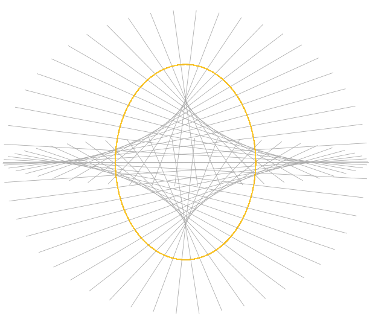Francisca Niklitschek
Contributing Authors
Dmitrij Achelrod PhD
Francisca Niklitschek
Psychedelic Therapy vs. Psychedelic Retreats
In a world where stress and disconnection often feel inescapable, the resurgence of psychedelics offers more than just curiosity – it offers hope and a chance to reconnect. But what exactly is psychedelic therapy, and how do psychedelic retreats fit into this evolving landscape?
For centuries, psychedelics have been revered by various cultures for their ability to explore consciousness and facilitate healing. Today, they’re staging a remarkable comeback – not only in clinical settings but also in the lush, immersive environments of retreats. While both approaches promise profound benefits, they cater to distinct needs and desires. Are you intrigued by how these experiences unfold? Wondering which path might resonate with your journey?
In this article, we’ll dive deep into psychedelic therapy and retreats, uncovering how they can help us reconnect with ourselves and cultivate a renewed sense of well-being. Whether you’re drawn to the precision of clinical therapy or the holistic embrace of a retreat, grasping their nuances can guide you toward one of the most transformative journeys of your life.
Understanding Psychedelics: A Brief Overview
Psychedelics are a fascinating class of psychoactive substances that shift perception, mood, and cognitive processes. From psilocybin (found in magic mushrooms or magic truffles) to ayahuasca, these compounds have captivated humanity for millennia, woven into spiritual and healing practices across cultures. But what makes them so compelling? It’s their extraordinary ability to expand the mind, offering glimpses into new realms of consciousness. When ingested, psychedelics interact with serotonin receptors in the brain, sparking altered states that can lead to deep introspection, emotional release, and spiritual awakenings [1]. For a deeper dive into its psychological benefits, see Increasing Psychological Flexibility with Psychedelics.

Studies show that psychedelics can effectively treat conditions like depression, anxiety, PTSD, and addiction, igniting excitement in both scientific and wellness communities [2]. This renaissance is paving the way for psychedelics to weave into modern practices, from clinical therapy to retreat experiences. For a peek into the neuroscience behind these mind-bending compounds, dive into Your Brain on Psychedelics.
Exploring Psychedelic Therapy
Psychedelic therapy, or psychedelic-assisted psychotherapy, harnesses substances like psilocybin, MDMA, or LSD to treat mental disorders under medical supervision [1], offering hope to those who’ve found little solace in traditional methods. It’s a guided journey, blending the power of psychedelic substances with psychotherapy in a controlled setting to spark deep psychological healing. This isn’t casual experimentation, it’s a structured process involving preparation, the psychedelic experience, and integration, ensuring safety and transformation [3].
The heart of the experience is the psychedelic session, where clients, guided by their therapist – often a psychiatrist or psychologist – dive into an altered state. This can unearth buried emotions, spark revelations, or reframe life’s narrative. Afterward, integration sessions help weave these insights into daily life, fostering lasting change [2].
The Therapeutic Process: How It Works
Psychedelic therapy begins with preparation, where the therapist builds trust and outlines what to expect which is crucial for navigating the psychedelic terrain. This usually happens over the course of several weeks, usually at least 3 preparatory sessions. The actual psychedelic session takes place in a clinical, serene space, with the therapist present to offer support as the client explores their psyche. As multiple clinical studies suggest, this phase can bring emotional breakthroughs as well as challenging moments. The important factor is that the entire process is all held within a safe container [4].
Post-session, integration is key. Therapists guide clients to process their experience, turning potentially fleeting epiphanies into actionable growth. This holistic framework is a powerful tool for healing and the rewards of psychedelic therapy are profound [3]. It excels at tackling treatment-resistant conditions – think depression, PTSD, or addiction – where other therapies falter. For example, research shows psilocybin can reduce depressive symptoms for up to a year, in some cases even offering relief when hope feels distant [5]. Beyond the clinical aspects, psychedelic-assisted therapy can foster self-awareness, emotional resilience, and a renewed sense of purpose, often deepening connections with others [2].
Delving into Psychedelic Retreats
Let’s explore what makes retreats so transforming. For a firsthand glimpse, read What to Expect from a Group Psilocybin Truffle Retreat.
What Are Psychedelic Retreats?
Psychedelic retreats are immersive experiences designed to facilitate personal growth, healing, and self-discovery through the guided use of psychedelic substances like psilocybin or ayahuasca.
The structure of certain retreats mirrors therapy in some ways: preparation sets the stage, psychedelic sessions spark insight, and integration ties it all together. Yet, the focus is broader – personal exploration over medical treatment – making retreats a magnet for those seeking clarity, personal growth, or creativity.

Preparation is crucial, as it helps participants set intentions and cultivate the right mindset for their journey. The psychedelic sessions are typically conducted in group settings, promoting a sense of community and shared experience. Integration sessions follow, providing participants with the tools to make sense of their experiences and incorporate the insights gained into their everyday lives. For those curious about choosing the right retreat, our guide on selecting a psychedelic retreat offers practical advice to help you find the best match for your personal values and goals.
Retreats shine for their immersion. Stepping away from routine and being surrounded by nature, amplifies introspection [6] creating a holistic reset for those craving spiritual or existential growth. Sharing the experience with like-minded souls brings a powerful sense of connection and depth [7], while skilled facilitators create a safe, supportive space that invites vulnerability and meaningful breakthroughs.
However, the retreat landscape is not regulated, leading to a wide spectrum of providers with varying levels of quality and professionalism. Some retreats offer little more than a psychedelic “one-nighter,” where participants depart the next morning with minimal support. In contrast, high-quality retreats, like those offered by Evolute Institute, prioritize comprehensive preparation and integration spanning weeks, paired with a thoughtfully designed 4-day retreat. This extended structure allows the nervous system to fully prepare for and process the psychedelic experience. Even rarer are retreats with medical doctors present during ceremonies – Evolute Institute being one of the few that does. Top-tier programs also maintain a low participant-to-facilitator ratio, such as 2:1 (e.g., 5 facilitators for 10 participants), ensuring personalized attention and care.
If you’re someone who values a space that’s both professional and purposeful, Evolute Institute offers legal psychedelic retreats with psilocybin-containing truffles (also called “magic truffles”) that are thoughtfully created to provide a safe and transformative experience. Discover more about our program by exploring the EvoSHIFT retreat on our website.
Psychedelic Therapy vs. Retreats: Making an Informed Choice
The decision between psychedelic therapy and a psychedelic retreat hinges on your specific needs, health status, and what you hope to achieve. These two paths offer unique benefits, but they are designed for different purposes, making it essential to align your choice with your personal circumstances.
Psychedelic therapy could be a good fit if you’re navigating specific mental health conditions – like depression or PTSD – offering a clinical, medically supervised path with structured integration [8]. This approach provides a clinical, medically supervised path, often involving structured integration over an extended period. It’s ideal for those who need precision and professional oversight to address specific mental health conditions. Therapy is conducted by clinically trained personnel, ensuring the resources and expertise required for therapeutic work are in place. For those experiencing substantial dysfunction – where everyday tasks feel overwhelming -, psychedelic therapy offers a focused, evidence-based framework for healing.

On the other hand, psychedelic retreats might be just what you need if you’re drawn to personal transformation, inner exploration, or spiritual growth. They offer deep, immersive journeys that can bring powerful insights and real breakthroughs – ideal when you’re ready for a fresh start or deeper clarity.
A standout feature of retreats is the community you meet. Participants often form deep bonds, creating a supportive network that can extend beyond the retreat itself. Skilled facilitators guide the process, ensuring safety and encouraging vulnerability, though they typically lack the clinical training and long-term support structure required for therapeutic treatment. Retreats shine for their ability to amplify personal transformation in a group setting, but they are not designed to compete with therapy or address diagnosed mental health conditions.
Here’s a quick comparison:
Aspect | Psychedelic Therapy | Psychedelic Retreats |
Purpose | Treat mental disorders | Enhance personal growth |
Setting | Clinical, controlled | Natural, diverse |
Oversight | Medical professionals | Facilitators, varying training |
Focus | Medical treatment + psychotherapy | Transformation, optional therapy |
Audience | Diagnosed individuals | Seekers of personal growth |
By recognizing these distinctions, you can choose an option that best supports your needs and ensures a safe, meaningful journey. For more guidance on finding a retreat that aligns with your values, explore our guide on selecting a psychedelic retreat.
In Conclusion
Psychedelic therapy, with its structured and clinical approach, provides a safe and controlled environment for those dealing with specific mental health issues or seeking a guided therapeutic experience. It offers the benefit of professional oversight, making it an ideal option for individuals who require a medical framework.

In contrast, psychedelic retreats provide an immersive and holistic experience, often in serene natural settings that encourage introspection and community connection. They are particularly appealing for people who seek not only personal growth but also a deeper spiritual or existential exploration.
At the Evolute Institute, the EvoSHIFT retreat unfolds as a masterfully designed experience, guiding participants toward profound transformation and self-exploration. Surrounded by a nurturing community of like-minded people and led by trusted guides, this journey offers unwavering support for personal growth.
Your choice depends on your journey. Stay informed, prioritize safety, and let intention guide you!
Bibliography
[1] ‘Psychedelic therapy’, Wikipedia. Mar. 12, 2025. Accessed: Mar. 13, 2025. [Online]. Available: https://en.wikipedia.org/w/index.php?title=Psychedelic_therapy&oldid=1280039683
[2] ‘Psychedelic Therapy: Uses, How It’s Done, Risks, and More’, Healthline. Accessed: Mar. 13, 2025. [Online]. Available: https://www.healthline.com/health/mental-health/psychedelic-therapy
[3] C. M. Reiff et al., ‘Psychedelics and Psychedelic-Assisted Psychotherapy’, Am. J. Psychiatry, vol. 177, no. 5, pp. 391–410, May 2020, doi: 10.1176/appi.ajp.2019.19010035.
[4] ‘Therapeutic Psychedelics: Psychedelic Medicine in a Therapy Setting’, EverydayHealth.com. Accessed: Mar. 13, 2025. [Online]. Available: https://www.everydayhealth.com/integrative-health/psychedelic-therapy/guide/
[5] ‘The 13 Best Luxury Psychedelic Wellness Retreats for Mental Health and Healing | Ethos’. Accessed: Mar. 13, 2025. [Online]. Available: https://the-ethos.co/best-luxury-psychedelic-retreats/
[6] E. Schmidt, ‘Retreats vs Clinics: Which Psychedelic Resource is Right for You?’, Third Wave. Accessed: Mar. 13, 2025. [Online]. Available: https://thethirdwave.co/retreats-vs-clinics/
[7] ‘The Role of Community in Psychedelic Experiences’, Experiential Training Institute | Psychedelic Retreats & Training Programs in the heart of the Netherlands. Accessed: Mar. 13, 2025. [Online]. Available: https://www.experientialtraininginstitute.com/blog/2dbuv4yl2wo36kmrb9idlyi5qx5s8d
[8] ‘Johns Hopkins Center for Psychedelic and Consciousness Research’. Accessed: Mar. 13, 2025. [Online]. Available: https://www.hopkinsmedicine.org/psychiatry/research/psychedelics-research
[9] M. Trimble, ‘Psychedelic Travel Experiences Are More Popular Than Ever’, Condé Nast Traveler. Accessed: Mar. 13, 2025. [Online]. Available: https://www.cntraveler.com/story/psychedelic-travel-experiences
FREQUENTLY ASKED QUESTIONS (FAQ)
Psychedelic therapy is a medically supervised treatment that combines psychedelic substances (like psilocybin or MDMA) with psychotherapy to address mental health conditions. In contrast, psychedelic retreats are immersive, often nature-based experiences designed for personal growth, self-discovery, and spiritual exploration.
It depends on your goals. Psychedelic therapy is ideal for treating conditions like depression, PTSD, or addiction in a clinical setting. Retreats, like EvoSHIFT, are best suited for those seeking a holistic reset, personal clarity, or spiritual insight without a formal diagnosis.
The safety of a psychedelic retreat depends on the provider. High-quality retreats like EvoSHIFT offer comprehensive preparation and integration, small group sizes, and professional facilitators—sometimes even medical staff onsite—to ensure a secure and transformative experience.
Consider your intentions. If you have a diagnosed condition or need clinical support, therapy is your best route. If you’re seeking transformation, meaning, or creative insight, a well-structured retreat like EvoSHIFT may offer the environment you need to go deeper.
Legality varies by country and substance. In the Netherlands, where EvoSHIFT operates, psilocybin-containing truffles are legal and safely used in retreat settings under professional guidance.
Some retreats incorporate therapeutic elements, but they typically don’t replace clinical therapy. EvoSHIFT, for example, includes psychological preparation and post-retreat integration, but it’s not a substitute for treatment of clinical conditions.

Patrick Liebl,
Lead Facilitator & Integration Expert
Curious to learn more?
We invite you to schedule a call with us. Together, we can explore any questions you may have. We can explore whether a program with a legal psychedelic experience is right for you at this time.
“We are here to support your exploration, at your pace, with no expectations.” – Patrick Liebl



